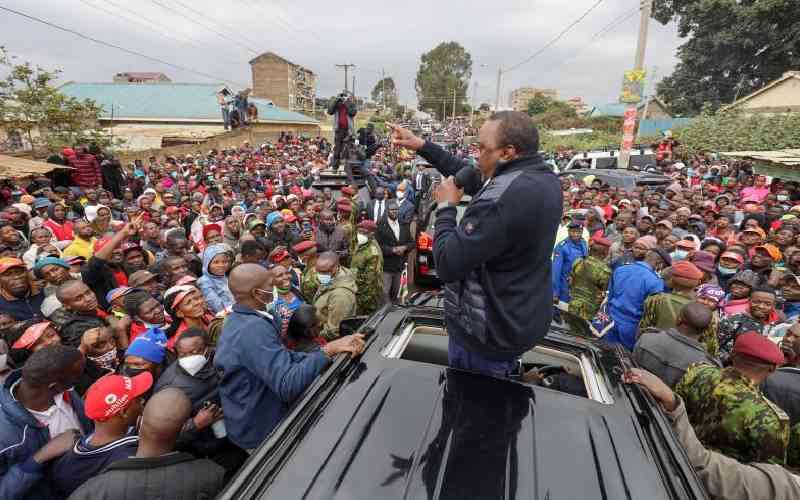×
The Standard e-Paper
Join Thousands Daily

After being taunted several times by Amani National Congress (ANC) leader Musalia Mudavadi, for allegedly abandoning his “political project”, President Uhuru Kenyatta has eventually hit the campaign trail with just three weeks to the polls.
With opinion highly divided on whether Uhuru’s presence hurts or boosts the presidential campaigns of Raila and Deputy President William Ruto, it is unclear if the president has played into Musalia and the rival camp, Kenya Kwanza’s, net.